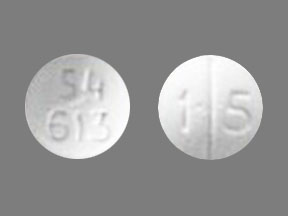
Codeine Sulfate Coupons & Savings Card – Discount Prices from $14.39
Codeine is an opioid pain medication used to relieve mild to moderate pain, especially when other non-opioid medications are ineffective. It works by converting to morphine in the body, which then binds to specific opioid receptors in the brain to alter the perception and response to pain. This drug is generally taken by mouth. While using Codeine, avoid alcohol, as the combination can dangerously slow breathing and lead to a loss of consciousness. Common side effects include constipation, itching, and drowsiness. As a generic drug, Codeine is not sold under any brand name. Always consult a healthcare professional before starting any new medication.
Our coupons are free to use. Before paying, show the pharmacist your Codeine Sulfate savings card to get your free discount. Use our filters below to edit the prescription box to match your needs. The Codeine Sulfate prices will update based on your prescription needs. Above our Codeine Sulfate coupons, you can change your location to see pharmacy prices and costs in other areas. We're here to help you buy Codeine Sulfate at the lowest price with our prescription discount card.
My prescription
Edit
15MG, Codeine Sulfate (30 Tablets)
Select pharmacy

CVS
$42.64
COUPON PRICE
Walgreens
$14.39
COUPON PRICE
Albertsons
$22.52
COUPON PRICE
Walmart
$29.89
COUPON PRICECodeine Sulfate savings card
Show this card to your pharmacist
Walgreens
$14.39
BIN
ID
PCN
GRP
019876
LHDF992657
CHIPPO
LHX
Powered by
Codeine is an opioid pain medication used to relieve mild to moderate pain, especially when other non-opioid medications are ineffective. It works by converting to morphine in the body, which then binds to specific opioid receptors in the brain to alter the perception and response to pain. This drug is generally taken by mouth. While using Codeine, avoid alcohol, as the combination can dangerously slow breathing and lead to a loss of consciousness. Common side effects include constipation, itching, and drowsiness. As a generic drug, Codeine is not sold under any brand name. Always consult a healthcare professional before starting any new medication.
Our coupons are free to use. Before paying, show the pharmacist your Codeine Sulfate savings card to get your free discount. Use our filters below to edit the prescription box to match your needs. The Codeine Sulfate prices will update based on your prescription needs. Above our Codeine Sulfate coupons, you can change your location to see pharmacy prices and costs in other areas. We're here to help you buy Codeine Sulfate at the lowest price with our prescription discount card.
More prescriptions for pain
coupons from$2448.70Save 18%
coupons from$24.77Save 75%
coupons from$7.93Save 67%
coupons from$350.57Save 73%
coupons from$16.18Save 82%
coupons from$5.93Save 76%
coupons from$9.81Save 69%
coupons from$83.57Save 72%
More prescriptions for pain
Lidosol Save 18%coupons from $2448.70
Ms Contin Save 75%coupons from $24.77
Naproxen Sodium Save 67%coupons from $7.93
Lidocaine Hcl Monohydrate Save 73%coupons from $350.57
Methyl Salicylate Save 82%coupons from $16.18
Aleve Pm Save 76%coupons from $5.93
Ft Pain Relief Adult Extra St Save 69%coupons from $9.81
Naproxen Dr Save 72%coupons from $83.57
Codeine Sulfate dosage forms
Use our Codeine Sulfate 15MG coupon with prices from $14.39 for 30 Tablets. You can also use our Codeine Sulfate 15MG coupon with prices from $66.63 for 100 Tablets. We have a Codeine Sulfate 30MG coupon with prices from $29.76 for 30 Tablets. You can use our Codeine Sulfate 30MG coupon with prices from $62.58 for 100 Tablets.
Dosage Quantity Price from Per unit 15MG 30 Tablets $14.39 $0.48 15MG 100 Tablets $66.63 $0.67 30MG 30 Tablets $29.76 $0.99 30MG 100 Tablets $62.58 $0.63 60MG 60 Tablets $66.97 $1.12 60MG 100 Tablets $99.42 $0.99
| Dosage | Quantity | Price from | Per unit |
|---|---|---|---|
| 15MG | 30 Tablets | $14.39 | $0.48 |
| 15MG | 100 Tablets | $66.63 | $0.67 |
| 30MG | 30 Tablets | $29.76 | $0.99 |
| 30MG | 100 Tablets | $62.58 | $0.63 |
| 60MG | 60 Tablets | $66.97 | $1.12 |
| 60MG | 100 Tablets | $99.42 | $0.99 |
